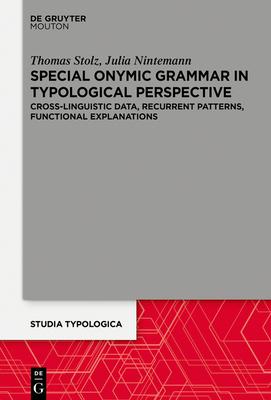For the first time, proper names are made the topic of a cross-linguistic account of morphosyntactic properties which formally distinguish place names, personal names, and common nouns. It is shown that the behaviour of place names and personal names in morphology and syntax frequently disagrees with the rules established for other word classes independent of the language's genetic affiliation, grammatical structure, and geographic location. Place names and personal names each boast a grammar of their own. They are candidates for the status of a distinct word class. Their special grammar comes frequently to the fore in the domain of spatial and possessive relations. This fact is explained with reference to functional notions.

Book
Special Onymic Grammar in Typological Perspective: Cross-Linguistic Data, Recurrent Patterns, Functional Explanations
(Write a Review)
Hardcover
$137.21
For the first time, proper names are made the topic of a cross-linguistic account of morphosyntactic properties which formally distinguish place names, personal names, and common nouns. It is shown that the behaviour of place names and personal names in morphology and syntax frequently disagrees with the rules established for other word classes independent of the language's genetic affiliation, grammatical structure, and geographic location. Place names and personal names each boast a grammar of their own. They are candidates for the status of a distinct word class. Their special grammar comes frequently to the fore in the domain of spatial and possessive relations. This fact is explained with reference to functional notions.
Hardcover
$137.21